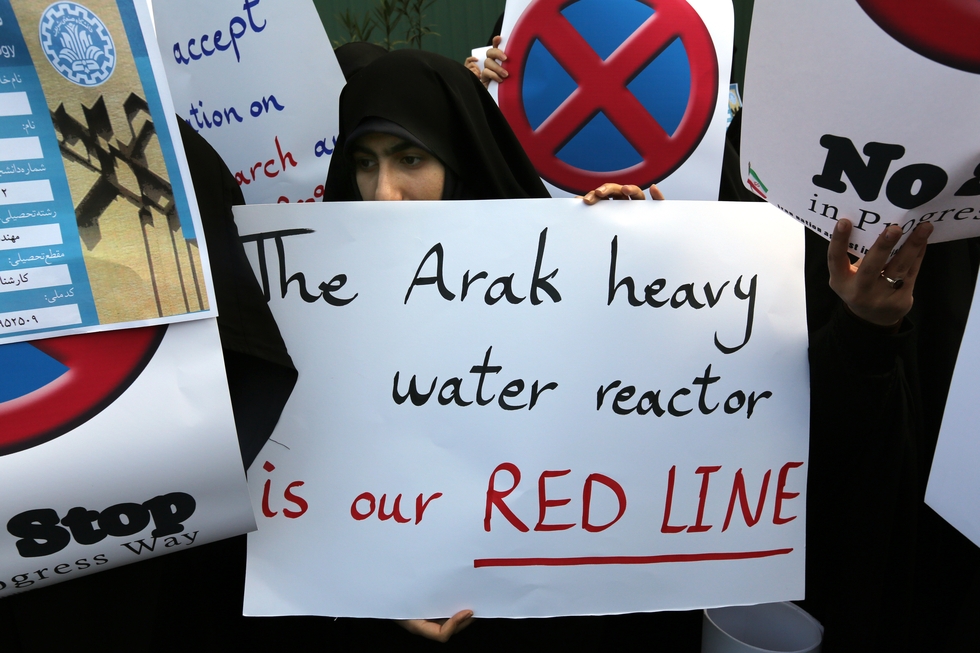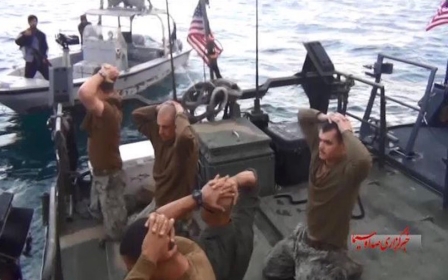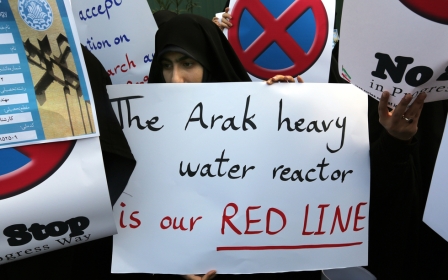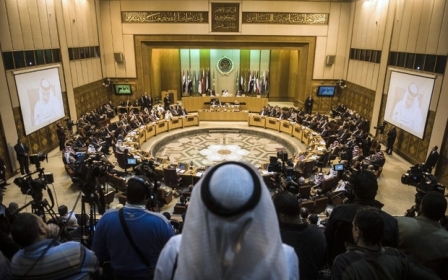Iran disables Arak reactor as nuclear deal nears confirmation

Iran has removed the core of the Arak heavy water reactor, fulfilling one of its last obligations under July's nuclear deal with world powers and paving the way for the lifting of sanctions.
"The core vessel of the Arak reactor has been removed... and IAEA inspectors will visit the site to verify it and report it to the IAEA. We are ready for the implementation day of the deal," Atomic Energy Organisation of Iran spokesman Behrouz Kamalvandi said on state TV on Thursday.
The final implementation of the nuclear deal is likely to herald the lifting of sanctions on the Islamic Republic, which have been in place since 2006 due to international concerns that Iran was developing nuclear weapons.
Sanctions have helped cripple Iran’s economy and have blocked access to crucial medical aid for much of the population.
US Secretary of State John Kerry on Wednesday hailed the new development, saying that the time when sanctions could be lifted on Iran was on the horizon.
"Implementation day - the day on which Iran proves it has sufficiently downsized its nuclear programme and can begin to receive sanctions relief - will take place soon, likely within the coming days," Kerry said.
"And when that happens, it will make us and our partners around the world more safe and secure."
Among the immediate impacts of the sanctions relief will be the unfreezing of around $50bn frozen in overseas bank accounts, according to US Treasury estimates.
On Monday, President Hassan Rouhani said the country was about to enter "a year of economic prosperity", with sanctions lifted, and said his government had delivered on its promises.
"The government is running the country under sanctions not under normal circumstances. God willing, in the coming days we will witness a rolling up of the sanctions scroll in this country," he said.
Much of Iran’s economy has been left in tatters by a combination of the sanctions and collapsing oil prices - the government has said it will need $100 billion to rebuild its energy industry and a further $29 billion for mining and steel.
Western analysts have noted that Iran's economy is ripe for investment, following the lifting of sanction.
"There is no denying that the country of almost 80 million people, holder of the world’s third largest reserves of oil and its second largest reserves of mostly untapped gas, has enormous potential," wrote Chris Weafer, an investment analyst, for the Financial Times.
"GDP is expected to be $430bn for the current fiscal year (to March 2016) and is certainly capable of more than doubling over the next seven years if sanctions are taken down as per the agreement with the UN, and they stay down."
The deal has also not sat well with many hardliners in the Islamic Republic, who view it as a capitulation to US pressure and an abandonment of the country’s independence.
New MEE newsletter: Jerusalem Dispatch
Sign up to get the latest insights and analysis on Israel-Palestine, alongside Turkey Unpacked and other MEE newsletters
Middle East Eye delivers independent and unrivalled coverage and analysis of the Middle East, North Africa and beyond. To learn more about republishing this content and the associated fees, please fill out this form. More about MEE can be found here.




